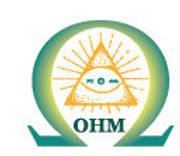
Many people are unaware that prescription drugs can be abused. It happens when a patient takes medication other than how it was prescribed, leading to risks such as addiction and overdosing. If left unaddressed, it can adversely affect the patient's life. Seek substance use treatment for your loved one as soon as you notice the following warning signs.
How to Identify Prescription Drug Abuse
1. Physical Changes
Commonly misused drugs include opioids, central nervous system (CNS) depressants, and stimulants. Opioid medications, like fentanyl, codeine, and morphine, diminish pain signals but boost dopamine, making patients feel good. Similarly, stimulants increase dopamine to let those with attention deficit hyperactivity disorder (ADHD), for example, focus and think more clearly. CNS depressants include sedatives and hypnotics to remedy sleep disorders and tranquilizers for anxiety.
Signs of opioid misuse are drowsiness, confusion, nausea or vomiting, low blood pressure, and persistent or increased pain. People abusing CNS depressants show many of the same indications as opioid overuse, except for chronic pain. However, symptoms of stimulant abuse include an irregular heartbeat, high blood pressure, fever, chills, seizures or uncontrolled muscle movements, and dilated pupils.
2. Behavioral Changes

As well as physical signs, your loved one may display noticeable behavioral shifts, such as extreme mood swings and irritability. They’re more likely to neglect their responsibilities at school or work, change their sleeping patterns, consult multiple doctors for the same health issue, and request early refills and higher dosages.
When patients overuse or take prescribed medications for purposes other than those intended, it may lead to dependence and addiction. Once you observe them acting unusually, it’s best to take them to a medical professional for substance use treatment.
3. Relationship Issues
Behavioral changes from prescription drug abuse often lead to the patient having problems with their relationships. For instance, they may withdraw more from their loved ones and isolate themselves. Sometimes, they may lash out at friends or family who express concern over their condition—denial and anger are common reactions of those struggling with abuse. If you notice they’ve become uncommunicative, seek a professional for substance use treatment.
A drug problem could also drive people to borrow money or steal from their friends or family to support their habit. In extreme cases, they may hurt their loved ones when forced to stop cold turkey or reduce their dose.
At the first signs of prescription drug abuse, seek substance use treatment at Ohm Mental Health in Lewiston, ID. This mental health center has a team of highly trained medical professionals to help your loved one recover through medication-assisted treatment (MAT). Reach out at (208) 717-4823, or learn more about their MAT therapy online.
About the Business
Have a question? Ask the experts!
Send your question

